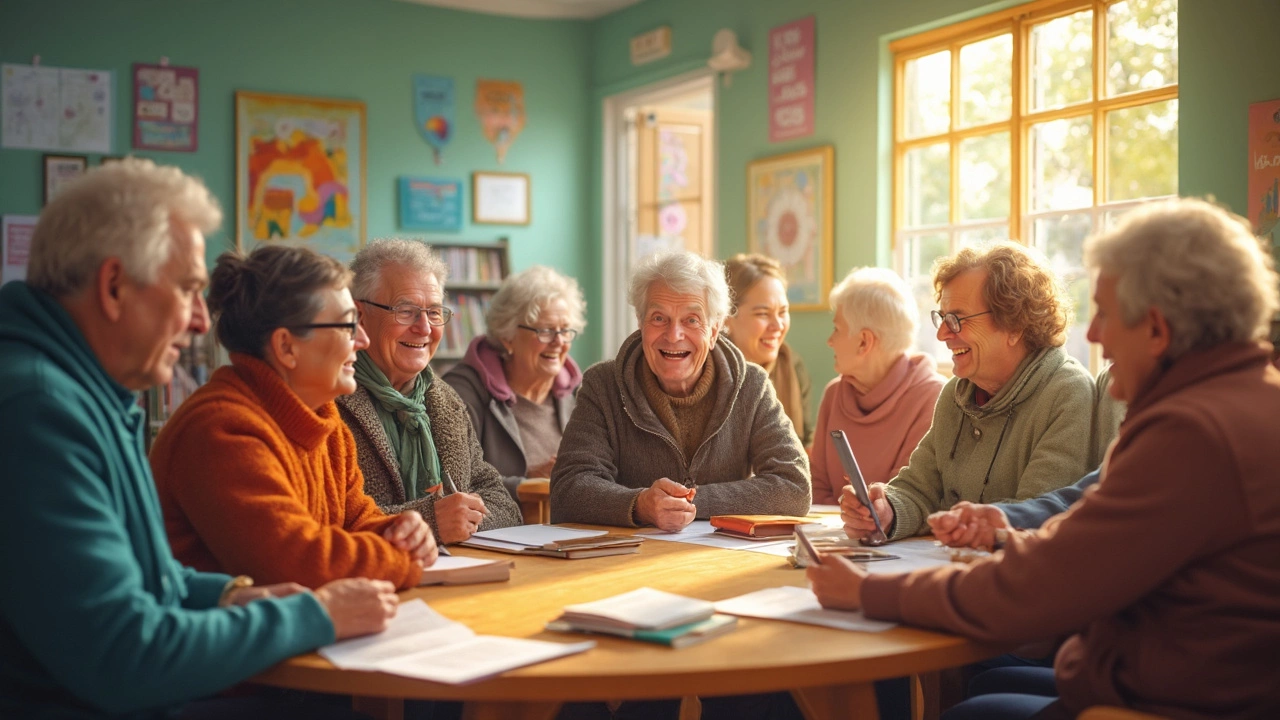Learning After 60: Simple Steps to Keep Growing and Stay Sharp
Did you know your brain can still grow new connections after you hit 60? It’s true – the brain stays plastic, which means you can keep learning new things just like when you were younger. The real question is: how do you start without feeling overwhelmed?
Why Learn After 60?
First off, learning isn’t just about picking up a new hobby. It can improve memory, lower the risk of depression, and even help you stay socially active. When you join a class or an online forum, you meet people who share your interests, and that social boost can lift your mood on a tough day. Plus, gaining new skills can open doors to part‑time work, volunteering, or simply feeling more confident handling technology.
Best Ways to Get Started
1. Choose a topic you love. Whether it’s gardening, photography, or a new language, passion makes practice feel less like a chore. Start with a short video on YouTube or a free trial on a learning platform – you’ll see if it clicks.
2. Try distance learning. Many universities now offer short courses designed for seniors. Look for programs that use clear videos, printable worksheets, and a friendly forum where you can ask questions. The flexibility lets you study at your own pace, which is perfect if you have other commitments.
3. Join a local adult‑education class. Community centres often run courses on everything from computer basics to art. The face‑to‑face interaction can be motivating, and you’ll walk out with a class schedule that keeps you accountable.
4. Set tiny goals. Instead of aiming to finish a whole module in a week, commit to 10 minutes a day. After a few weeks you’ll notice progress, and that small win fuels the next step.
5. Use technology wisely. If you’re new to online learning, start with a tablet or a laptop that’s easy to navigate. Enable larger fonts and captions if reading on a screen feels hard. Many platforms also have phone apps that let you learn while you’re on the go.
6. Track your achievements. Keep a simple notebook or digital log of what you’ve learned. Checking off completed lessons gives you a tangible sense of accomplishment.
7. Stay social. Share what you learn with friends or family. Teaching someone else reinforces your own knowledge and turns learning into a shared experience.
Remember, the goal isn’t to become an expert overnight. It’s about staying curious and keeping your mind active. If you stumble – maybe a concept feels tough – pause, ask a question in a forum, or revisit the material later. That’s how learning works for anyone, no matter the age.
Finally, celebrate every milestone. Finished a chapter? Treat yourself to a favorite tea. Completed a course? Show off your certificate on the fridge or social media. A little recognition keeps the momentum going.
Learning after 60 can be as easy or as adventurous as you make it. Pick a subject, dip your toes into an online class or local workshop, and watch how a few minutes a day can transform how you feel about yourself and the world around you.
How Can I Learn After 60? Practical Paths to Lifelong Learning
Getting older doesn't mean you have to stop learning. This article shares practical ways people over 60 can keep picking up new skills, boost their memory, and stay mentally sharp. You'll get tips on online courses, joining community groups, and ways to make learning more enjoyable. There are also insights on how learning helps your brain and why it's never too late to start. Dive in to find resources and real-life steps that fit your life now.
More
